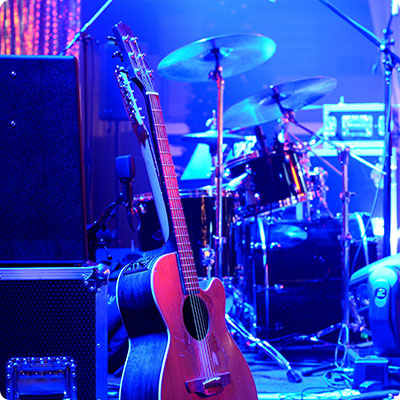A short history of 20th-century Congolese cinema
Like many colonial countries in French-speaking Africa, Congolese cinema developed only slowly after independence. The first Congolese feature film was made in 1974 by Sébastien Kamba, born in Brazzaville in 1941 and trained at the French Office de coopération radiophonique. Ten years earlier, Kamba had directed his first short, Le Peuple du Congo-Léo vaincra, the very first Congolese feature film. During these two decades, Kamba collaborated with Congolese television, as did Jean-Michel Tchissoukou, another outstanding director of this period. In 1970, Tchissoukou directed his first short film, Illusions, a fable about the disillusionment of a peasant who comes to Brazzaville in search of work. In 1979, Tchissoukou directed the comedy La Chapelle, a scathingly funny film depicting the tensions between African religions and the Catholic Church in 1930s Congo. This film won an award at FESPACO in 1981, and - along with M'Pongo ou Les lutteurs, Tchissoukou's second feature released in 1982 - would go on to establish Tchissoukou's international reputation. He died in 1997.
Unfortunately, despite these leading figures, Congolese cinema has struggled to develop into a real industry. Lacking government support, and with no screening rooms to speak of (these have been bought up and turned into places of worship), Congolese filmmakers are no match for television, video and the cultural clout of international film productions. In the 1990s, Congolese cinema survived as best it could thanks to the influence of Sébastien Kamba, head of the Association des cinéastes congolais, and David-Pierre Fila, a documentary filmmaker and photographer who showcased the Republic of Congo and its civilizations in Tala Tala (1991). An encounter with ancestral culture between Ouesso and Brazzaville, poetry of images and stories that carry you away.
Renewal and hope for Congolese cinema
In the 2000s, the situation for Congolese cinema wasn't exactly rosy. Although, according to Minister Aimée Mambou Gnali in charge of culture, it was "the least of the government's concerns", the seventh art was struggling to find a foothold in a country where DVDs and pirated copies were omnipresent. However, the ease of access to digital technology also benefits Congolese filmmakers who shoot directly on video. Among them, Léandre André Baker, also a writer, actor, director and theater artist, shot short films and numerous documentaries at the beginning of the decade, between France, CAR and the Republic of Congo. In 2008, he directed his first feature film in Senegal. Ramata is the powerful story of a complex African woman who carries many stigmas. The film deals in depth with universal themes such as love, seduction, break-ups and the wounds of life, with the captivating Guinean actress Katoucha Niane in the title role. She died in tragic circumstances just after the film's release, leaving behind this powerful film and a book, Dans ma chair, a testimony to her fight against the genital mutilation she herself had undergone.
At the same time, filmmaker and screenwriter Camille Mouyéké took up cinema training in Paris on a meagre government grant. After several short films, in 2001 he directed his first feature, Voyage à Ouaga, which was very well received by the critics and won the Audience Award at the Festival International du Film Francophone de Namur, a major film festival held every year in southern Belgium. Following in the footsteps of Kamba and Baker, Mouyéké set up his own production company, Namib Cinéma, in Pointe-Noire.
In 2016, after decades of neglect, Congolese cinephiles finally found their way back to the big screen thanks to the reopening of the MTN Movies House in Brazzaville. A cinema that has since been joined by the Canal Olympia, a modern 300-seat cinema financed by the French Bolloré Group, and inaugurated on April 17, 2019 in the commune of Poto-Poto.
Today, Congolese cinema can look forward to a revival, thanks to these screening rooms and a renewed enthusiasm for the seventh art. However, filmmakers still feel the need to leave their homeland to work in the industry. Ill-informed or lacking training opportunities, they often have to go abroad to hope for a career. Like Sidney Kombo-Kitombo, a director and special effects specialist who now works for one of the world's most prestigious studios, and collaborated on Avatar with James Cameron's teams. Let's hope that these Congolese examples will inspire many other vocations, and that training options in the Republic of Congo will expand in the future.
Outstanding documentaries filmed in the Republic of Congo
Although the Republic of Congo has not, like its neighbor, welcomed such big names as Leonardo DiCaprio (producer of Virunga, shot in the DRC and multi-prize-winning), the country has nevertheless been the subject of many powerful documentaries since the early 2000s. In 2010, at the initiative of the Rotterdam Film Festival, American filmmaker Kevin Jerome Everson directed BZV, a different approach to putting Africa into images, which questions our preconceptions. A touching film, very different from what we see on the news. Hassim-Tall Boukambou's Révolutionnaire(s), another outstanding project, this time by a Congolese, tells the story of Congo's political history between 1966 and 1991 in three parts. An impressive piece of archival work, indispensable for a better understanding of the construction of this country.
More recently, the Republic of Congo hosted the filming of Hadrien La Vapeur and Corto Vaclav's documentary Kongo (2019). A powerful film that brings Brazzaville to the screen through the story of Apôtre Médard, a healer whose life is turned upside down when he is accused of practicing black magic. In 2019, the film was screened at Cannes, and is now available online. An opportunity to discover another facet of Congolese culture, through a tale of spellbinding images.














